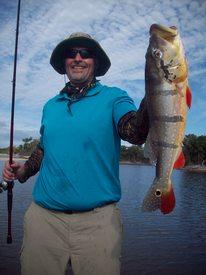Tools for medicating with food?

jkern9110
Posts: 119 Member
This past month, I have struggled, stumbled, and fallen flat on my face with staying on plan. I'm 9 months post op and have had my days in the past where I didn't do so good, but 5 weeks? That's out of control. I'm out of control. I was reading a post where you all were talking about food addiction/compulsion/abuse and I realized what I had been doing. I was definitely medicating with food again. I feel like I have been both stressed and depressed this past month and coped with food. I ate pretty much whatever I wanted and stopped tracking because I knew I was wrong. I have gained and lost the same two pounds the entire month. I have got to get this under control. It's obvious to me now that I hadn't fully addressed my bad habits from pre-surgery.
What tools or tricks do you use to help you address self medicating with food?
What tools or tricks do you use to help you address self medicating with food?
0
Replies
-
Hi, I'm Pat. I can't say I medicate with food, in fact when I am stressed, angry, sad, name your negative emotion, I won't eat, refuse to, don't care if I don't get my protein, calories, water in for the day. For me this is a complete turn around from my pre-surgery life and I can't explain why it happened, but I also can't complain that it did. What I battle is head hunger, the wanting to eat even if I'm not hungry and sometimes even if I'm still full from dinner. I know I'm not hungry, nothing is going on, everything is fine, I'm not even bored, I just want to put food in my mouth. Even though I know what it is, I still struggle with it. Sometimes drinking a flavored water or tea with a little honey, or going for a walk will help. Sometimes not. If I've had a run of days with evening head hunger, I will break up my dinner. Eat the protein portion at meal time and then wait until 7 or so and eat a salad. Because lettuce really fills me and seems to hang on for a long time, I can't eat anything else and can barely drink anything after that, so I'm good. And then there are nights where I've even just gone to bed at 8 PM to keep myself out of the pantry.

If your surgeon's office has a support group, maybe that willl help. I've heard a lot of stories on here from people who really have found help at these groups.0 -
One of the big things for me is that I now recognize what is happening and the helps me to make a better decision before I slide into the (food, alcohol, exercise) bad thing I am about to do. One of my patterns was that when everyone else went to bed, I would sit up (usually watching sports) and have one more (large) glass of wine, which would then turn into a ravaging of whatever was in the fridge. I have stopped drinking in the pre-op stage, but I now realize that the alcohol just made it easier. when i am sitting alone at night, I find myself mentally going through the fridge to see what is in there.
I recognized that a couple of nights ago when I was watching the Spurs/Heat game, and it was enlightening to kind of watch myself go through the steps that were about to result in BIG FOOD. I succeeded in letting the thoughts pass and didn't eat.
Exercise-wise, my main time is after work, and I have always been unsuccessful at keeping this habit up for any length of time. It was too easy to decide I was too tired after work, needed to cook, blah blah blah. And end up not going. Again this time around, I can feel it happening (I call it my lazy or weak self) trying to convince my strong self to not go to the gym. So far, I have ignored that a**hole and gotten myself to the gym a lot more than in the past.
In short, then; I think I have been successful because I spent some time thinking about my bad patterns and recognizing them happening. Recognition leads to better choices (for me, for now). I wish you well in finding some solutions to your issues.
Rob0 -
Thanks for the comments. It's always helpful for me to see how other people handle similar struggles. I definitely need to do a self assessment to try and recognize what my triggers are, when they occur, why I still let them conquer me, and determine what I can do to stop my bad habits in the future.
I'm struggling with that overwhelming sense of guilt anf failure. At nine months post-op, I know I should have a better handle on this stuff.0 -
I suspect it's a lifelong battle but being aware of your triggers and being mindful of your eating choices and mood should help reign it in when it gets out of hand. I've never been truly self-aware but it feels like something I need to learn how to do in order to stay on my path. It seems so touchy-feely to check in with myself and ask myself how I'm doing and feeling and what my goals for the day/week/month are. But just the process of doing that makes a difference in my commitment to my path to health. I remind myself that not being self-aware and being unwilling to be honest with myself is what got me into this mess in the first place.
 0
0 -
This is what I do:
The first thing to do is to put EVERYTHING into your food diary on MFP. Absolutely everything that goes into your mouth - good, bad or ugly. Be scrupulously honest with yourself.
Then, make small changes, one at a time. Such as:
1. Every day I will drink 80 oz of water. When you accomplish that and it is a part of your routine...
2. Every day, I will eat 3 large servings of raw vegetables. When you accomplish that and it is a part of your routine...
3. Every day, after dinner, I will walk for 20 minutes around the block. When you accomplish that and it is a part of your routine...
4. Every day, ...
And so it goes. Obviously, this is what has worked for me when I feel out of control.
Good luck.0 -
ALSO! How could I forget this!
There is a great audio CD you can purchase or download by Pema Chodron, called "Getting Unstuck". It is all about addiction, mindfulness, and what drives us to distract or numb ourselves. It is profound and life changing. Pema is also very entertaining to listen to.0 -
Cognitive Behavioral Therapy was a life changing process for me. If you can find a counselor who specializes in disordered eating, I would highly recommend giving it a try.
What helps me is to plan my food in the mornings on MFP and stick to my plan. If I truly feel hungry and feel like I need more food, I don't allow myself to choose cookies or treat-type food. If I'm really hungry and need more food, I need to eat protein and veggies.
You will find that from here on out, losing will not be easy. In fact, 3 years out, losing is harder for me than it was pre-surgery. I rely heavily on the habits and concepts that I developed early on to help me maintain: working out regularly and intensely, planning my food, protein-based meals, communicating openly with those around me, making positive purposeful changes in my life.0 -
Bump Just in case.0
This discussion has been closed.





